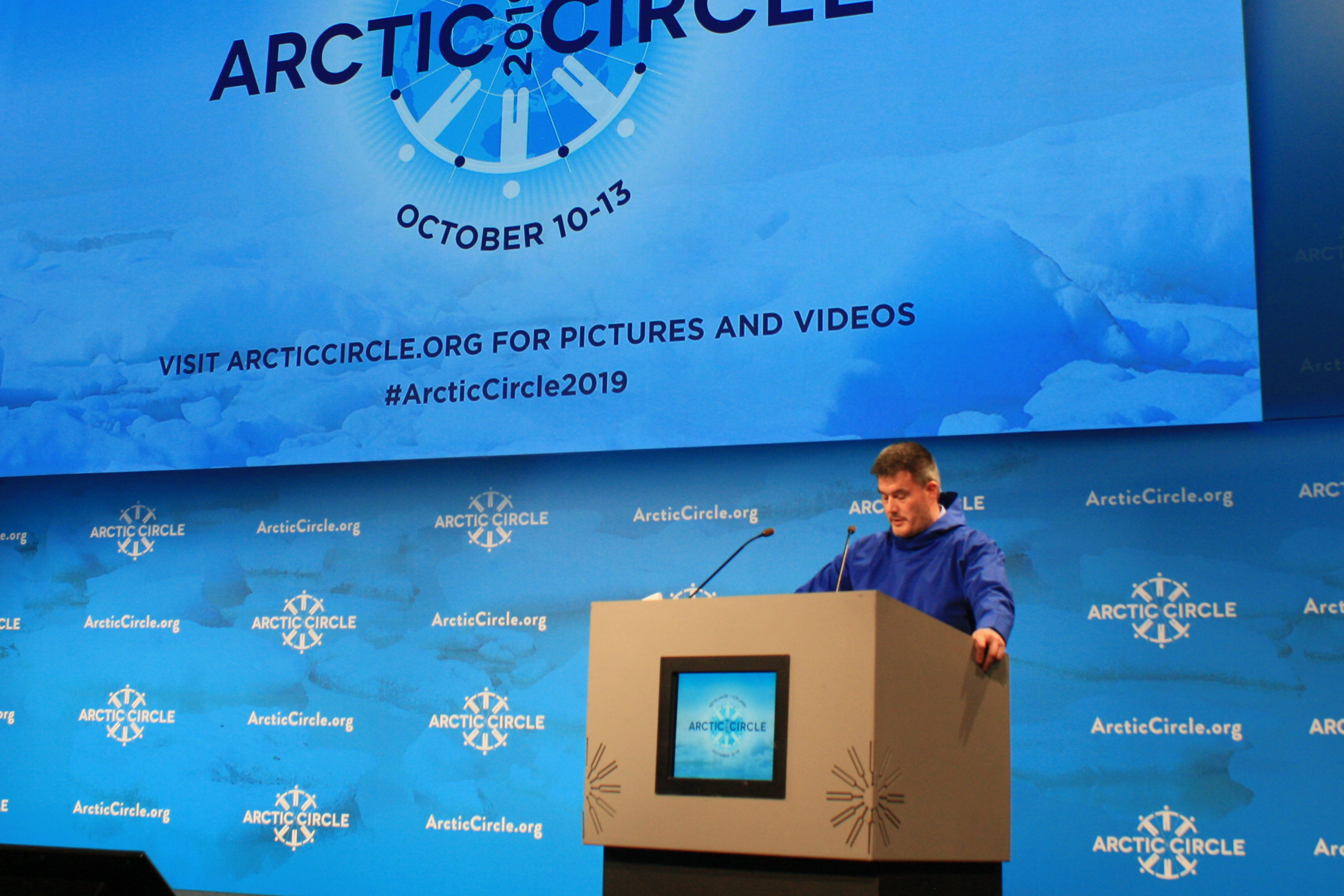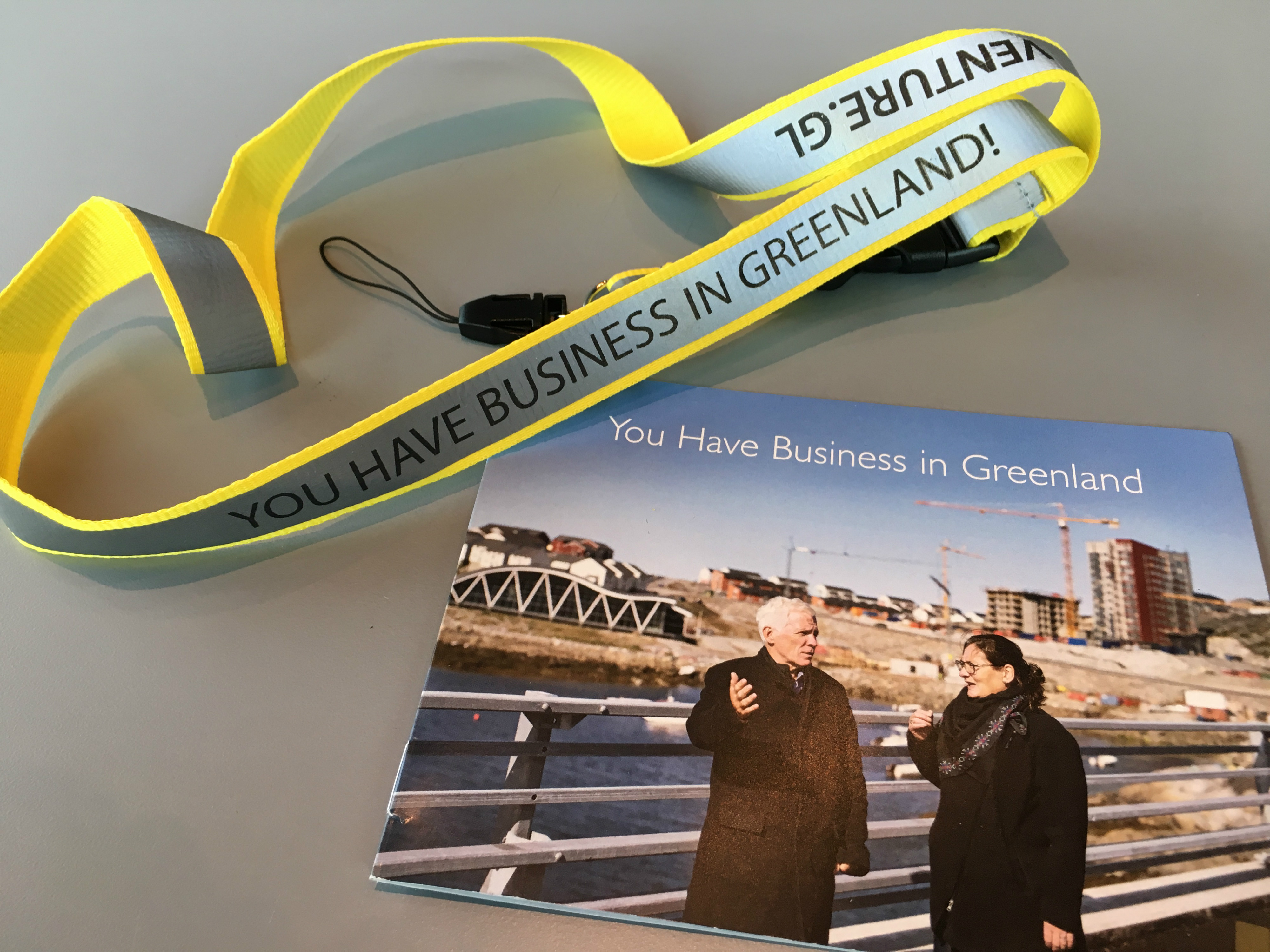Greenland aims to turn international attention into international investment
Coverage of Trump's wish to buy the island could turn out to be Greenland's “Eyjafjallajökull moment.”

When reports surfaced this summer that U.S. President Donald Trump had expressed his ambition to buy Greenland, the international media storm that ensued may have had the side effect of giving the nation an economy-transforming publicity boost.
A Greenlander speaking this week at the Arctic Circle Assembly in Reykjavik, one of the world’s largest annual Arctic gatherings, suggested that burst of attention to Greenland might prove to be its “Eyjafjallajökull moment.”
“Any publicity can have enormous impact, especially on a small society such as ours,” said Inga Dora Markussen, head of education and training at Royal Greenland, the government-owned seafood and fishing company, introducing a panel on the nation’s economic opportunities. “An example could be the volcano eruption in Eyjafjallajökull in 2010.”
That eruption halted air travel in Europe, catapulting Iceland into international headlines — and eventually sparking explosive growth in tourism, thanks to the publicity generated by that event.
“So can another event,” Markussen said, “like a suggestion to buy a whole country.”

In Iceland this week, Greenland appeared well-prepared to take advantage of its moment in the spotlight.
At the Arctic Circle Assembly, the country was especially well represented, with scores of business leaders, diplomats, and members of Inatsisartut (Greenland’s parliament) all present.
The delegation was led by Premier Kim Kielsen, who enjoyed a prominent place on the main stage Thursday, just before the keynote address by U.S. Energy Secretary Rick Perry.
In response to a Bloomberg reporter’s question, Kielsen reiterated that Greenland isn’t for sale:
#Greenland PM Kim Kielsen responds firmly to @Bloomberg journalist’s question as to whether he has considered how much $ his country’s people could get if they accepted @realDonaldTrump‘s offer. His answer:
“Greenland cannot be exchanged for money.” #ArcticCircle2019 #Arctic pic.twitter.com/rJlOIZrz0V
— Mia Bennett (@cryopolitics) October 10, 2019
But most of his address was focused on Greenland’s development and its ambitions for a future it determines for itself, echoing a now-familiar mantra that seeks to leverage attention from the sensationalist appeal of a story about the purchase of a country to the practical one of growing a new economy: “Our country is not for sale, but we are open for business.”
That refrain was also repeated by Foreign Minister Ane Lone Bagger, who first said it in Greenland’s immediate response to news of Trump’s purchase aims.
In a panel courting investment in Greenland that also included two Greenlandic CEOs, Bagger said that “the government of Greenland welcomes the increase of interest in our country from around the world.”
“Everyone is welcome to do business with us and do investment with us,” Bagger said. “But it must be under our terms and you must follow our country’s laws and regulations, and this of course applies to everyone.”
Kielsen’s speech and the investment panel were just two of several Greenland-focused events at the conference.
Speakers there and elsewhere emphasized Greenland’s infrastructure upgrades.
A new port capable of handling more international shipping, opened in the capital and largest city Nuuk, in 2017, and a planned freight service to Maine is set to begin in early 2020. Meanwhile, a series of new runways are planned for airports in Nuuk and two other cities in coming years (though that process has been controversial).
The country also — like Iceland after Eyjafjallajökull — has potential for big growth in tourism. And its mining sector, which has recently been revived with two new mines, has room to grow, too. Earlier this summer, the country partnered with the U.S. military to map parts of the island to better understand its mineral potential.
Economic growth has an additional element of national importance in Greenland. The country, an autonomous territory within the Kingdom of Denmark, is on a path to independence, but its current economy continues to depend on block grants from Denmark.
Melody Schreiber contributed to this report.